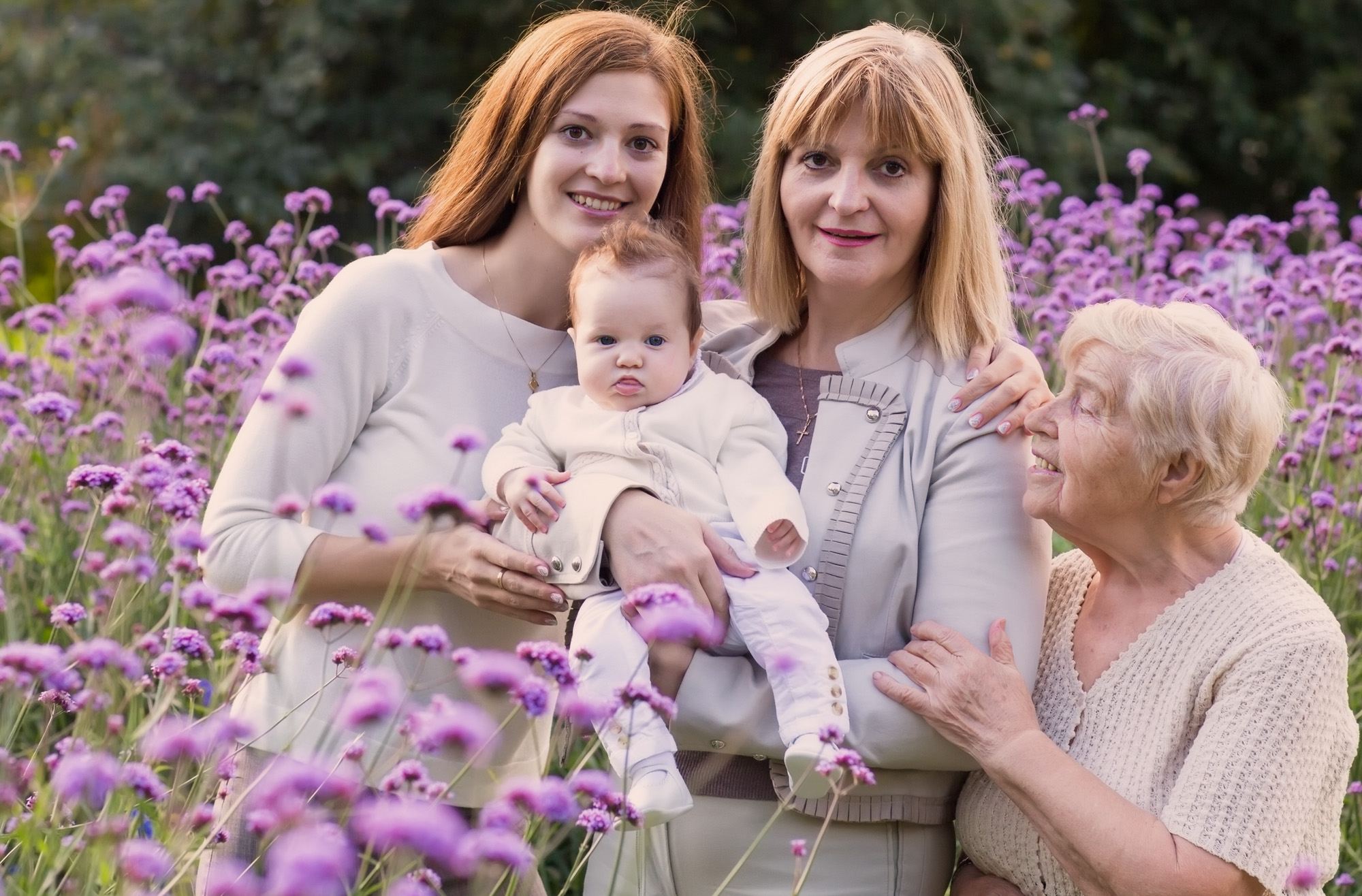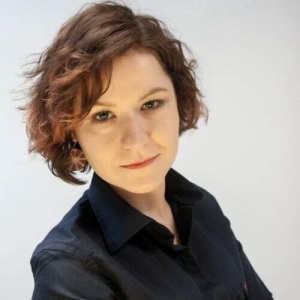
ongoing
GEMTRA: Transition to MotherhoodAcross Three Generations of Women

principal investigator / project leader
Ph.D. / Associate Professor
Sociologist. Head of the Youth Research Center.
Full bio project value: PLN 773,000
funding source: National Science Center
discipline: sociology
location: Warsaw
duration: 2018 2019 2020 2021
“It takes a whole village to raise a child,” in Poland this “village” means exclusively women. Although, times are changing, and with them the meaning of parenthood changes too, society is still convinced that it is the mother’s responsibility to raise a child and prepare it to live in a society. Besides personal and social expectations, there is also the reality of motherhood and intergenerational relations between mothers. Researchers from SWPS University will study the process of transition to motherhood through the eyes of three generations of Polish mothers: first-time expecting mothers, their mothers and grandmothers.
RESEARCH PROJECT
GEMTRA
Transition to Motherhood Across Three Generations of Polish Women
An Intergenerational Longitudinal Study
Research Unit

Grant AmountPLN 773,000
Funding Source

Duration of Research Project: September 2018 – September 2021
“It takes a whole village to raise a child,” in Poland this “village” means exclusively women. Although, times are changing, and with them the meaning of parenthood changes too, society is still convinced that it is the mother’s responsibility to raise a child and prepare it to live in a society. Besides personal and social expectations, there is also the reality of motherhood and intergenerational relations between mothers. Researchers from SWPS University will study the process of transition to motherhood through the eyes of three generations of Polish mothers: first-time expecting mothers, their mothers and grandmothers.
Project Outline
Motherhood is one of the most important sociological markers of transitioning from early adulthood to the so called core adulthood. In a life-cycle perspective, having children is seen as a key turning point, which may determine other life choices, such as: employment, mobility, migration. Motherhood constitutes a vital socio-historical lens since, on the one hand, it is affected by the process of social reproduction, and on the other, it reflects social changes. In this context, the main aim of GEMTRA (GEnerations of Mothers TRAnsition) project is to examine the process of transition to motherhood across generations of Polish women, namely young, first-time expecting mothers (generation G3), their mothers (generation G2) and grandmothers (generation G1).
The main research question of the project is: What does the process of transition to motherhood look like across three generations of Polish women? The following hypothesis that will be verified during the research process are: It is forecasted that both new models of transitions and strong intergenerational transfer can be observed with respect to motherhood models and their reproduction. Specifically, it is believed that women from G1 and G2 generations perceive motherhood as an obligatory marker of becoming an adult. For them motherhood coincides with other events such as: getting married, starting a family, leaving the family home, completing education and entering labor market. In contrast, for G3 generation women motherhood is just one of the markers which may, but does not have to be fulfilled. However, the transition of generation G3 women is marked by contradictions; on the one hand they can take advantage of reproductive agency (access to contraception and information, economic stability and social welfare), on the other they are embedded in the traditional and patriarchal models of motherhood in Poland, for example the myth of the Polish Mother.
We commonly hear that ‘it takes a village’ to raise a child, though it seems that the residents of this village in Poland are primarily female. In contemporary discourse the responsibility to prepare a child for a life in society falls solely on mothers. Contrasting social expectations about motherhood with reality and adding intergenerational relations between expecting mothers and their own mothers and grandmothers, can create significant challenges for women. However, it may also illustrate social changes that occurred in the last fifty or so years with regard to motherhood in Poland. With this in mind, we seek to explore how Polish women talk about becoming a mother, grandmother and grand-grandmother.

Pustułka, Paulina
Principal Investigator
Specialization
sociologist
First and last name
Paulina Pustułka
Academic degree or title
Ph.D. / Associate Professor
Email
This email address is being protected from spambots. You need JavaScript enabled to view it.
Position
profesor uczelni
Role in the Institute
{"funkcja-w-instytucie0":{"Funkcja":"","\u0141\u0105cznik":"","Nazwa w mianowniku":"Institute of Social Sciences"}}
Role in the Research Center
{"funkcja-w-centrum0":{"Funkcja":"Head","\u0141\u0105cznik":"of the","Nazwa w mianowniku":"Youth Research Center"}}
Institute
Institute of Social Sciences
Role in the Faculty
{"funkcja-na-wydziale0":{"Funkcja":"","\u0141\u0105cznik":"","Nazwa w mianowniku":"Faculty of Social Sciences in Warsaw"}}
Role in the Department
{"funkcja-w-katedrze0":{"Funkcja":"","\u0141\u0105cznik":"","Nazwa w mianowniku":"Department of Sociology"}}
Ph.D. / Associate Professor Paulina PustułkaSociologist. Head of the Youth Research Center.
Research Methods
The project proposes an intergenerational, retrospective and prospective research on transitions to motherhood. Research design and methods are grounded in theoretical conceptualization of flexible social time, which became the backbone for Qualitative Longitudinal Research (QLR) tradition in an epistemological and methodical approach.
The project will comprise of two waves of research, with Wave 2 occurring about 9 to 12 months after Wave 1. Participant recruitment entails conducting no less than 100 interviews, with a minimum of 60 interviews during Wave1. The assumed flexibility in terms of intergenerational triads of respondents (G3-G2-G1) will result with at least 20 investigated families. Convenience sampling will be applied in this project.
In order to capture the continuum of “before” and “after” of the event of becoming a mother, as well as grandmother and grand-grandmother, the researchers will attempt to interview (IDI – Individual In-depth Interview) women of all three generations within the respective and purposefully sampled families.
Application of Results
The chosen theoretical and methodological approaches enable GEMTRA project to further knowledge in the subfield of family sociology and youth studies, as well as signal the first step in conceiving Polish sociology of generations. The project will strengthen the use of innovative research methods (QLR – Quality of Life Research, genograms) in the Youth Research Center of SWPS University, as well as enrich the body of data which can be used to formulate family policy in Poland.
Research Team

Buler, Marta
Specialization
Sociologist
First and last name
Marta Buler
Academic degree or title
Ph.D.
Email
This email address is being protected from spambots. You need JavaScript enabled to view it.
Ph.D. Marta BulerSociologist. Head of the Youth Research Center.